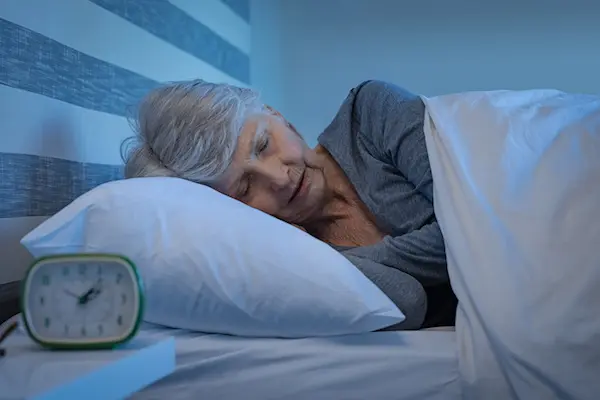Study to Help Older People Remain Alert and Healthy on the Job

05/29/2019
By Karen Angelo
Sleep at any age is essential to overall health. But for 3 million older people in the U.S. who work the night shift, restful sleep is hard to come by.
Sleep disruption can lead to depression, cardiovascular disease and accidents on the job or at home. To combat these issues, Asst. Prof. Yuan Zhang of the Solomont School of Nursing is partnering on a $1.7 million four-year National Institute of Aging (NIA) grant to study strategies that help older night shift workers sleep soundly.
“By 2020, a quarter of the workforce will be over 55 years old,” says Zhang, who is partnering on the grant with Jeanne Duffy, an associate professor at Harvard Medical School who is also at the Division of Sleep and Circadian Disorders at Brigham and Women’s Hospital in Boston. “Inadequate sleep is one of the most difficult problems facing American night workers. Given our increasing understanding of how sleep deficiency contributes to adverse performance, health and safety, finding solutions to this issue has never been more important.”
Most overnight workers sleep in the morning, which means they wake up eight or more hours before their next shift. They are trying to work when their biological clock is set to sleep.
Through the grant, the research team will recruit participants in the New England area to field-test an alternative schedule. While one group of night shift health care workers aged 50 to 65 years old will follow their usual schedule of sleeping in the morning, two other groups will sleep for eight hours starting in the early afternoon or at a desired time. Each participant will take part in the study for two weeks of night work.
This new study builds upon a previous NIA-funded study of 38 older men and women conducted by Duffy at the Center for Clinical Investigation at Brigham and Women’s Hospital. Duffy and the research team found improvements in night shift alertness and performance as a result of an eight-hour sleep schedule that began in the early afternoon.
“Dr. Duffy’s study found that the older participants who spent eight hours in bed from the afternoon into the evening got significantly more and less disrupted sleep than those who slept in the morning, as most shift workers do,” says Zhang. “They also showed better shift alertness and performance and reduced levels of the stress hormone cortisol. We look to significantly expand on these findings with the new NIA grant.”
To further examine whether the afternoon-evening sleep schedule can work in the real world, the research team will also administer surveys to 1,000 night shift workers and conduct focus groups with the sleep trial and survey participants.
“While a number of strategies to improve sleep and alertness in shift workers have been tested, few studies have focused on a sleep pattern change and focused on older adults, who are becoming a significant portion of the overall workforce,” says Zhang.




